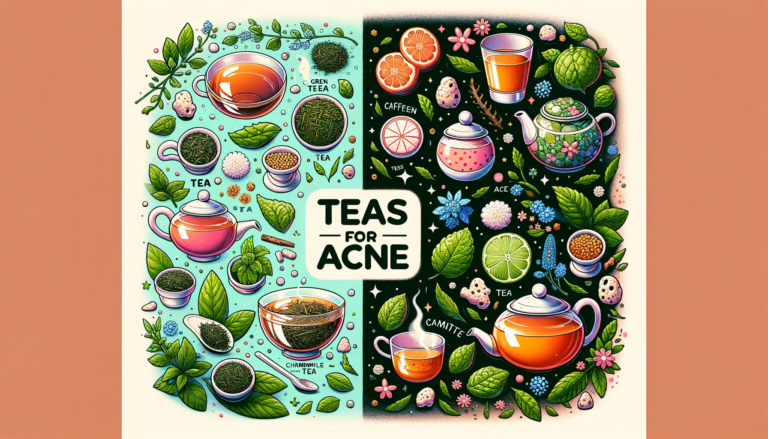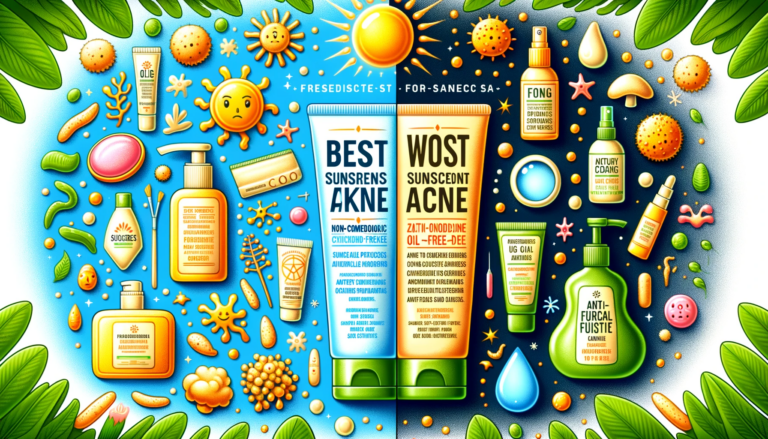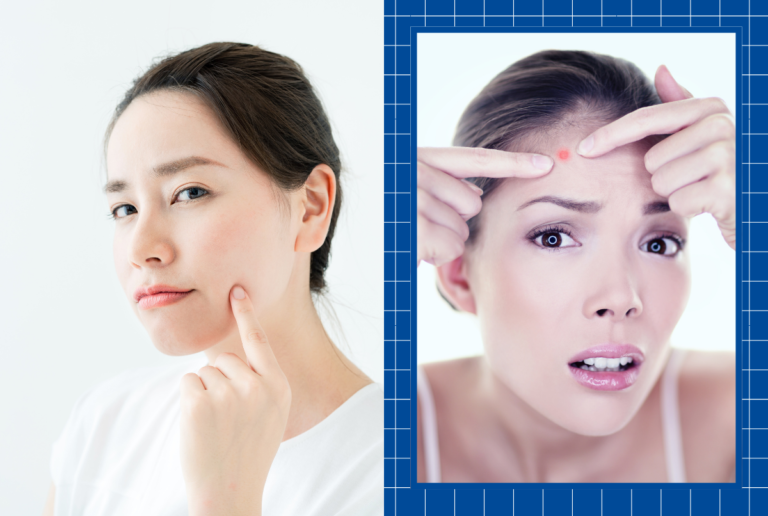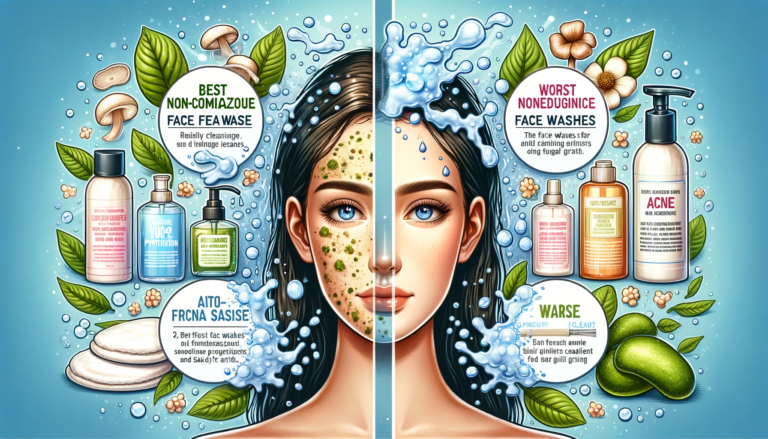How to Close Blackhead Holes Effectively?
Curious if hyaluronic acid is the secret to hydration or the hidden culprit behind breakouts?
This powerhouse ingredient is everywhere in skincare, celebrated for its unparalleled moisture-binding capabilities. Yet, amidst its acclaim, some wonder if it could be stirring up acne troubles.
Is there truth to this, or is it all just skincare myth? We’re here to dive deep into the hyaluronic acid debate, separating the hydrating facts from the acne fiction.
Well, we’ll be going over:
- What is hyaluronic acid and how does it work to hydrate your skin?
- Can hyaluronic acid actually lead to acne, or is it a misunderstood hero in your skincare lineup?
- What are the best ways to incorporate hyaluronic acid into your skincare routine for maximum benefits and minimal risks?
Let’s dive in.

Understanding Blackhead Holes
Before diving into how to close blackhead holes, it’s crucial to understand what they are. Blackhead holes, also known as open comedones, occur when your pores become clogged with a combination of dead skin cells and excess oil. Exposure to air oxidizes the debris, turning it black and creating the characteristic appearance of a blackhead.
Your skin type and hygiene practices play significant roles in the development of blackhead holes. Those with oily skin are particularly prone to them, as excess sebum contributes to pore clogging. However, over-cleansing or using harsh skincare products can also strip your skin of its natural oils, leading to an increased production of sebum and, consequently, more blackheads.
Incorporating gentle exfoliation into your skincare routine can help remove dead skin cells and prevent the formation of blackhead holes. Opt for products containing salicylic acid, a beta-hydroxy acid known for its ability to penetrate deep into pores and clear out clogs.
Causes of Blackhead Holes
Understanding why blackhead holes appear is key to preventing them. Primarily, they manifest when your pores become clogged with a mix of dead skin cells and excess oil. This blockage is what forms a blackhead, and when left untreated, it can leave behind enlarged pores, known as blackhead holes.
Hormonal changes play a crucial role, especially during puberty, pregnancy, or when you’re undergoing hormonal treatments. These changes can increase oil production, leading to more clogged pores. Moreover, environmental factors like humidity or exposure to pollution can exacerbate the issue by introducing more contaminants into your pores.
Your skin care habits also have a significant impact. Over-cleansing or using harsh exfoliants can strip your skin of its natural oils. This, paradoxically, leads to an increase in oil production as your skin tries to compensate. Similarly, neglecting to remove makeup before bed can contribute to the clogging of your pores, fostering the perfect conditions for blackhead holes to form.
The Importance of Proper Cleansing
Proper cleansing is a cornerstone in preventing and managing blackhead holes. It’s not just about removing dirt and makeup; it’s about maintaining the health of your skin. When you cleanse correctly, you’re removing excess oil, impurities, and dead skin cells that can clog your pores. This simple yet essential step can significantly reduce the likelihood of blackheads forming.
Choosing the right cleanser is crucial. Opt for a gentle, non-comedogenic product that won’t strip your skin of its natural oils. Harsh cleansers can do more harm than good, prompting your skin to produce even more oil to compensate for the loss, which can exacerbate the problem. Incorporate this into your daily skincare routine, cleansing your face twice a day—once in the morning and once at night before going to bed.
Remember, the right technique matters as much as the product. Use lukewarm water and apply the cleanser using gentle, circular motions. This method helps to unclog pores without irritating your skin. After cleansing, pat your skin dry with a clean towel instead of rubbing it, to prevent any potential damage to your skin’s surface.
Exfoliating for Smoother Skin
Regular exfoliation is key to minimizing the appearance of blackhead holes. By sloughing away dead skin cells, you’re preventing them from clogging your pores and forming blackheads. Choose an exfoliant that’s suited to your skin type—chemical exfoliants with AHAs or BHAs are effective for most skin types because they penetrate deeply into the pores.
When using a chemical exfoliant, start slowly to see how your skin reacts. Initiating with applications once or twice a week and observing your skin’s reaction will help you avoid irritation. Remember, it’s crucial not to over-exfoliate; doing so can strip your skin of its natural oils, leading to increased oil production and potentially more blackhead holes.
In addition to chemical exfoliants, physical exfoliants like face scrubs can be gentle alternatives for people with less sensitive skin. However, aim for products with smooth, round beads rather than harsh, jagged particles to prevent micro-tears in the skin.
Incorporating exfoliation into your skincare routine encourages cell turnover, making it easier for creams and serums to penetrate the skin. This, in turn, improves your skin’s texture, making blackhead holes less noticeable.
Topical Treatments for Blackhead Holes
When tackling blackhead holes, incorporating topical treatments into your skincare routine can make a significant difference. These treatments are designed to penetrate the skin deeply, unclogging pores and promoting healing from within.
One of the most effective ingredients to look for is salicylic acid. This beta hydroxy acid (BHA) works by dissolving the dead skin cells and excess oils that contribute to blackhead formation. Using a product containing salicylic acid can help in significantly reducing the appearance of blackhead holes over time.
Retinoids, another powerful class of topical treatments, accelerate cell turnover. This process not only helps in clearing existing blackheads but also prevents the formation of new ones by ensuring that dead skin cells are shed more effectively. Retinoids are available both over-the-counter and by prescription, depending on their strength.
For those with sensitive skin, niacinamide offers a gentler alternative. Known for its anti-inflammatory properties, niacinamide helps in reducing redness and swelling around blackhead holes, making them less noticeable.
Incorporating these ingredients into your nightly skincare routine, after cleansing and before moisturizing, can enhance your skin’s texture and clarity over time. Remember, consistency is key when it comes to topical treatments.
Advanced Skincare Techniques
When delving into advanced skincare techniques to close blackhead holes, it’s crucial to explore professional treatments alongside your at-home routine. Microdermabrasion and chemical peels stand out as effective options.
Microdermabrasion involves a specialized tool that gently removes the upper layer of the skin. This process not only helps in reducing the appearance of blackhead holes but also stimulates collagen production for healthier skin. Chemical peels, using stronger acids than at-home exfoliants, deeply exfoliate the skin, targeting the deeper layers where blackhead holes form. They help clear out clogged pores and promote new skin growth, significantly improving your skin’s texture and appearance.
Incorporating these techniques can provide a noticeable difference to your skin-care regimen. However, remember to consult with a skincare professional to tailor the treatments to your skin’s needs and avoid potential risks.
Natural Remedies for Blackhead Holes
Tackling blackhead holes doesn’t always require a trip to the pharmacy. Natural remedies can be just as effective, offering gentle, yet powerful ways to reduce their appearance.
First on your list should be honey and cinnamon. This powerhouse duo acts as a natural antimicrobial agent, helping to clear out pores while preventing future clogs. Simply mix equal parts to create a paste, apply it to the affected areas, and let it sit for about 15 minutes before rinsing off with lukewarm water.
Another remedy worth trying is green tea. Known for its antioxidant properties, green tea can help reduce skin inflammation and oil production, two key contributors to blackhead holes. Steep green tea bags in hot water, let the liquid cool, and then use a cotton ball to apply the tea directly to your skin.
Aloe vera, with its soothing properties, is excellent for healing the skin and minimizing the appearance of pores. Apply aloe vera gel directly from the plant to your skin after cleansing and allow it to dry.
Incorporating these natural remedies into your skincare routine can aid in the fight against blackhead holes, enhancing your skin’s overall health and appearance.
Lifestyle Changes to Prevent Blackhead Holes
Adopting a few lifestyle changes can make a significant difference in your fight against blackhead holes. Hydration plays a pivotal role in keeping your skin healthy. Aim for at least eight glasses of water a day to flush out toxins and maintain the skin’s elasticity. Adding nourishing, water-rich foods to your diet like fruits and vegetables can also support skin health.
Diet is another factor that cannot be overlooked. Foods high in sugars and fats can trigger oil production, exacerbating blackhead holes. Opting for a balanced diet with an emphasis on omega-3 fatty acids, found in fish and nuts, can help regulate sebum levels.
Exercise boosts overall circulation and encourages sweating, naturally clearing clogged pores. However, it’s crucial to cleanse your face thoroughly after a workout to remove any sweat and impurities that could clog pores even further.
By incorporating these changes into your daily routine, you’re not just preventing blackhead holes but also promoting a healthier lifestyle and improved skin quality.
Conclusion
Embarking on the journey to minimize blackhead holes can feel daunting but armed with the right knowledge and tools, you’re well on your way to clearer, smoother skin. Remember, it’s all about consistency and finding what works best for your unique skin type.
From gentle cleansing and regular exfoliation to incorporating targeted treatments like salicylic acid and retinoids, each step plays a crucial role in your skincare routine. Don’t underestimate the power of natural remedies and lifestyle changes in supporting your skin’s health. Patience and persistence are key, as improvements won’t happen overnight.
Keep at it, and you’ll start to see those blackhead holes become less and less noticeable. Here’s to embracing the journey towards healthier, more radiant skin.






